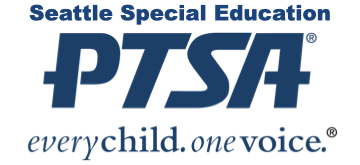Dear School Board Directors, Superintendent Jones and Senior Staff:
At the August 11 School Board meeting, District staff assured the School Board that they would assist families who had registered for the Virtual Program, Grades 6-12, to find and enroll in other virtual programs offered in the state. In particular, promises were made about assisting families of students with IEPs, 504 plans, English learners, experiencing homelessness, etc.
Staff did not clearly explain to the School Board that the affected students would have to un-enroll in SPS and enroll in a different school district. The School Board should be very clear that by cancelling the Grades 6-12 Virtual Program, SPS has rejected this group of students and told them they have to go elsewhere — to another school district — to receive their education.
What is the reality of the assistance provided by the District to affected families since August 11? Here is one family’s experience that we believe illustrates what many of these families have actually experienced. This family has a student with an IEP who is unable to attend school in person at this time due to the pandemic.
The family was given a list of eight virtual programs. When the parent spoke to the Special Education supervisor, he asked for time so that when they met, he could provide information about which program would be the best fit for the student. At the meeting, held over a week after SPS cancelled its virtual option program, the Special Education supervisor told the parent that according to the information he had received, two of the eight programs would accept all students. He recommended that the parent talk to those two programs and not bother contacting the other programs. When asked what would happen if the parent was unable to enroll the student in time, he responded that the student was welcome to attend in-person school at SPS (despite knowing that this student is unable to attend in-person).
Both of the recommended virtual programs are run by the same for-profit company. After hours of being on hold and making multiple phone calls, the parent finally spoke to someone at one of the two programs. She was informed that yes, the program would accept the student but only on the following conditions:
- The student’s minutes of specialized direct instruction in her IEP would be reduced significantly
- The program would not provide any 1:1 Paraprofessional support (the student has two hours a day of paraprofessional support in her IEP)
- Social skills instruction, which the student is supposed to receive while in general education, would only be provided in a separate class, once a week, with a pre-planned curriculum that was not individualized for the student’s needs
- The program would not provide executive functioning support, as required by the IEP, but expected the parent (known as the “learning coach”) to provide that support.
The parent brought all of these facts to the Special Education Department’s attention, let them know that this was not acceptable and asked how SPS planned to make sure her student’s IEP would be implemented so her student would receive a free and appropriate public education. After several days, she has not received any response.
Independently, the parent was able to talk to one of the other programs on the list where they were willing to follow the existing IEP and hire a paraprofessional to support her student. This program was not recommended to the family by the Special Education Department.
This particular parent is well educated, speaks English and has been able to devote the time needed to do her own research, wait on the phone for hours and find a virtual program that was willing and able to accept her student with her existing IEP. If she had followed the advice from the Special Education Department, she would be stuck right now between a rock and a hard place — forced to choose between a virtual program that would not meet her student’s disability needs and sending her student in-person, which is not medically feasible.
We call upon SPS — again — to reinstate the virtual option for grades 6-12. This situation is not equitable and should not be allowed to continue by the School Board.
Respectfully, Janis White, President
Seattle Special Education PTSA
